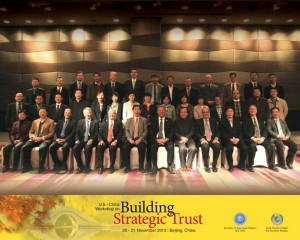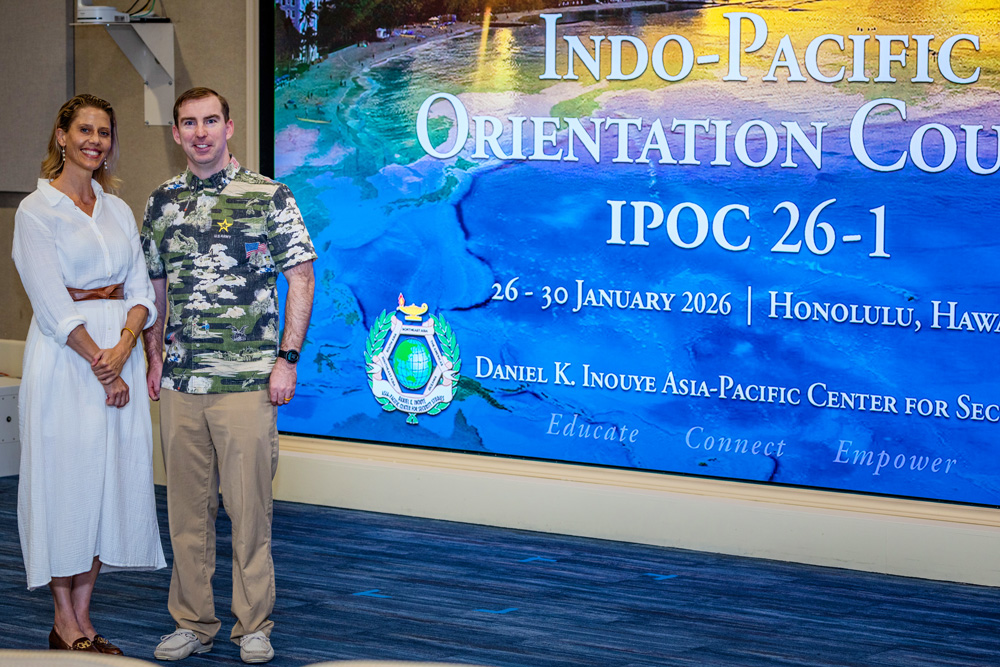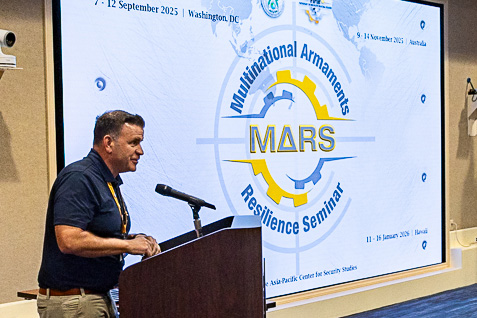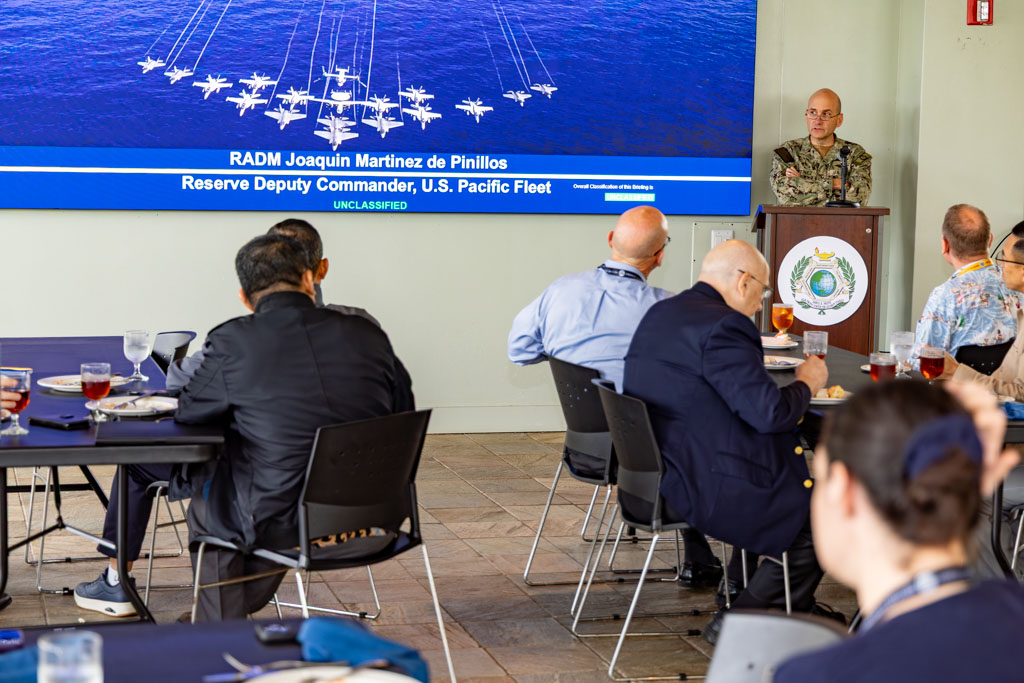 In November, the Asia-Pacific Center for Security Studies conducted two events in China. The first was a two-day bi-lateral workshop entitled “US-China: Building Strategic Trust” with the Institute of American Studies (IAS) of the Chinese Academy of Social Sciences (CASS). APCSS representatives also met with Chinese counterparts in Lanzhou, China to exchange knowledge on climate change and security issues and, to consider further steps to improve the collaboration between the scientific and security communities.
In November, the Asia-Pacific Center for Security Studies conducted two events in China. The first was a two-day bi-lateral workshop entitled “US-China: Building Strategic Trust” with the Institute of American Studies (IAS) of the Chinese Academy of Social Sciences (CASS). APCSS representatives also met with Chinese counterparts in Lanzhou, China to exchange knowledge on climate change and security issues and, to consider further steps to improve the collaboration between the scientific and security communities.
The Beijing workshop included 40 people sharing perspectives and identifying possible areas for mutually building strategic trust between the US and China.
Discussion topics included: Current State of Trust; China’s Perspectives on Progress Following the Xi-Obama Summit; Building Trust thru Anti-Piracy Operations at the Horn of Africa; and the Role of Third Parties in Building Trust.
The Lanzhou sessions included the Chinese Academy of Sciences Cold and Arid Regions Environmental and Engineering Research Institute (CAREERI) and the U.S. National Center for Atmospheric Research (NCAR) in examining and developing the research concept of “High Asia” as it relates to climate change at higher elevations throughout China, Central Asia, Nepal, India, Mongolia and Russia.
APCSS and CAREERI are now exploring the possibility of continuing collaboration on topics of mutual interest.









It is a great initervention to research on High Asia, specialay to explore the impact of climate change at High Altitude. As a matter of fact Pakistan is having serious vulnerability to Glacial melt and GLOF (GLACIAL LAKE OUTBURSTS FLOODS) like Attaabad catastrophe in Northern Areas in Karakoram area.
May I suggest if you could include the name of Pakistan in this program.
Regards
Bob
(BG Zaheer Uddin Babur )